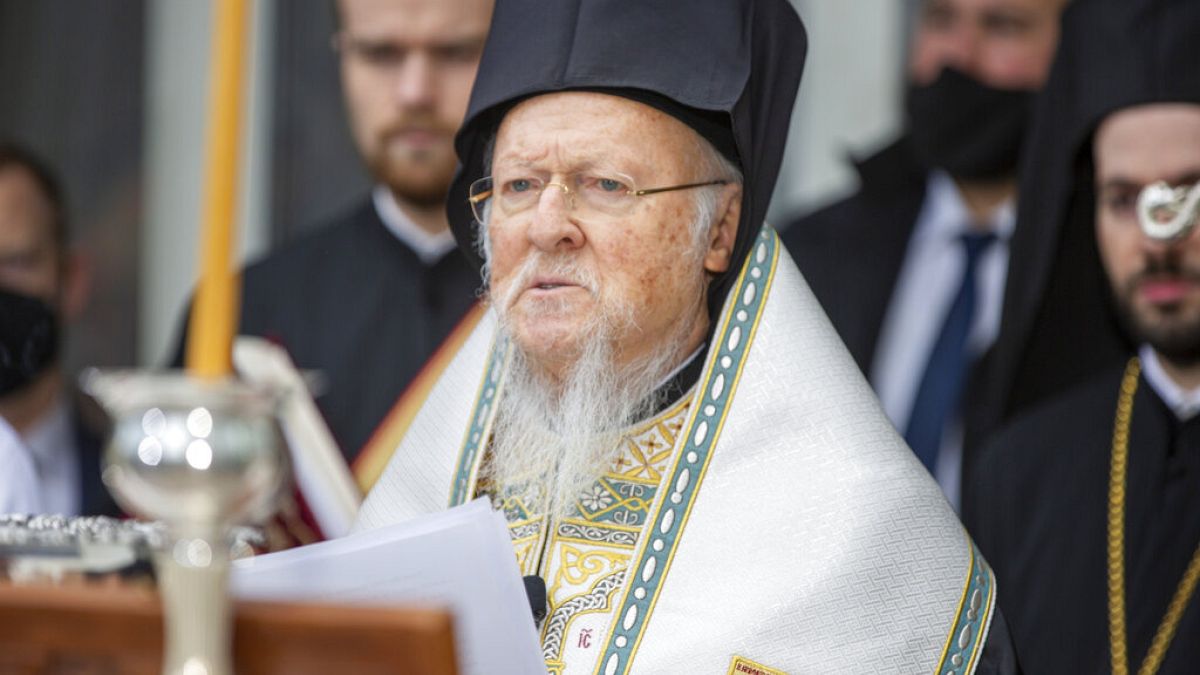Turkey refuses to acknowledge the title of Ecumenical Patriarch Bartholomew of Constantinople, stating that it violates the Treaty of Lausanne that established the Republic of Turkey. Recently, Ukraine’s President Volodymyr Zelenskyy referred to Bartholomew as the “ecumenical patriarch” in a social media post, sparking backlash from the Turkish Orthodox Church. The church warned that Zelenskyy’s comments could jeopardize peace and sovereignty between Kyiv and Ankara. Turkey only recognizes Bartholomew as the spiritual leader of the local Greek Orthodox minority in Turkey, rejecting the universal title used by Western countries.
The controversy surrounding Bartholomew’s title stems from Turkey’s concern that granting him more recognition could challenge the idea of Turkish nationality, which is a key aspect of the nation’s secular system. The patriarch using the term “ecumenical” during visits abroad has often caused tension with the Turkish government, as they view it as interference in their internal affairs. Turkey considers Bartholomew to be subject to their authority under the Treaty of Lausanne, signed in 1923, which laid the groundwork for the establishment of the Republic of Turkey.
Zelenskyy’s conversation with Bartholomew took place amid a split within Ukrainian orthodoxy, highlighted by the recent passing of a law banning Russian Orthodox Church activities in Ukraine. The law has been viewed as targeting the Ukrainian Orthodox Church (UOC), a group with ties to its Russian counterpart. The UOC claims to have broken from Russian authority, but Kyiv remains skeptical, and has initiated legal proceedings against UOC clerics for alleged ties to Russia. This issue has divided Ukraine’s Orthodox Christian community, leading to the establishment of the Orthodox Church of Ukraine in 2019 with recognition from Bartholomew.
Despite the rift within the Ukrainian Orthodox Church, Zelenskyy emphasized his commitment to strengthening Orthodoxy in Ukraine and fostering open dialogue between churches during his conversation with Bartholomew. The Ukrainian President’s support for the new law on spiritual independence, aimed at promoting national and spiritual independence, aligns with the government’s efforts to distance itself from Russian influence. Bartholomew, known for criticizing Russia’s actions in Ukraine, plays a key role in supporting Ukraine’s spiritual sovereignty.
In conclusion, the dispute over Bartholomew’s title reflects broader tensions between Turkey and Ukraine, as well as the complexities of religious independence and national identity. The controversy surrounding the patriarch underscores the delicate balance between international relations, internal affairs, and religious autonomy. As Ukraine navigates the challenges of religious autonomy and external influence, the support from Bartholomew and other global religious leaders remains essential for maintaining peace and stability within the region. It is crucial for both Turkey and Ukraine to find common ground and uphold mutual respect while addressing issues related to religious leadership and national sovereignty.











